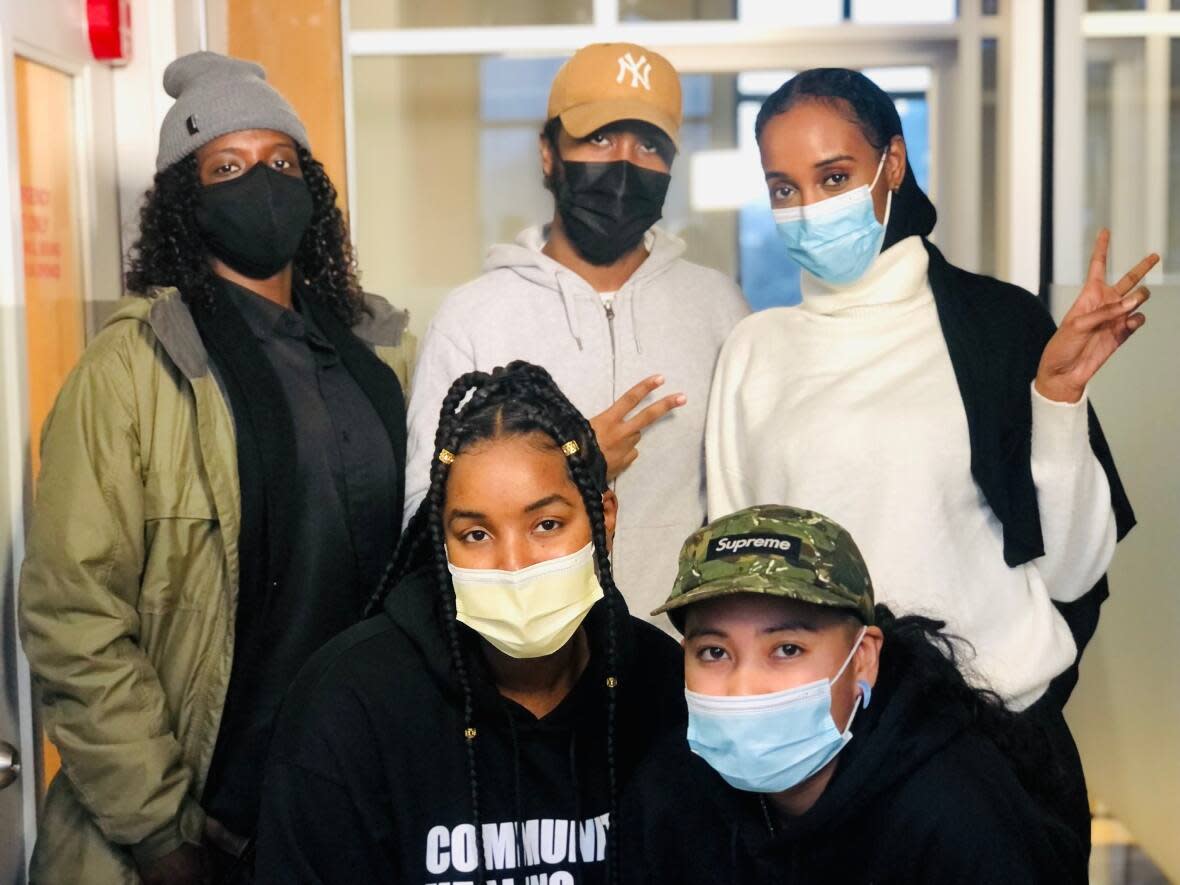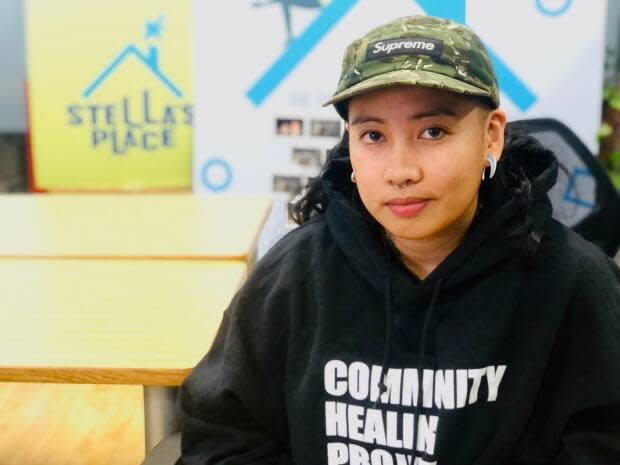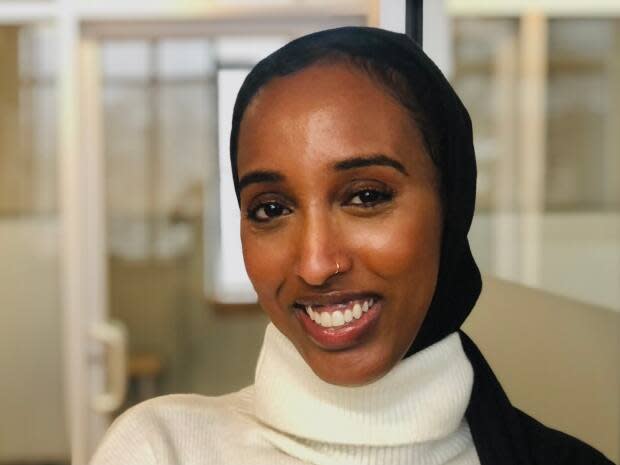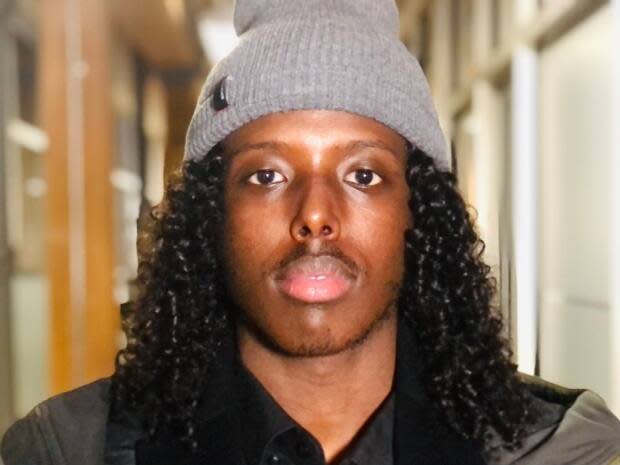How a Toronto project is tackling violence by helping youth talk about past trauma

Dizzy Ricamara remembers the feeling of being 13 and losing peers to violence in her own community.
"I just remember not seeing friends coming back to school and not seeing them in the playground again," said Ricamera, who grew up in Malvern, a neighbourhood in Toronto's northeast corner.
"There was just this silence -- like no one really talked about it."
Ricamara said it took years to understand that not talking about the trauma she felt had a negative impact on her.
"I think that ... not being able to talk about how I'm really feeling or not having the tools to do that really set me back," she told CBC News.
She says wasn't until she found out about the Community Healing Project (CHP) a few years ago that she was able to navigate those feelings by talking to people.
"I felt like I just had never been in a room with people who literally all have experienced the same experiences I had in terms of community violence," said Ricamara. "It gave me a space to really trust somebody."

Now 27, Ricamera graduated from the CHP in 2020. The program allows young people exposed to trauma to process it and learn how to cope. They then go back into their communities and share the lessons they've learned, either as peer mentors or through other initiatives. At the heart of the program, which recently started its 10th cohort, is the understanding that trauma can lead to more bloodshed.
Programs like these are more important than ever as violence has plagued the start of 2022 in Toronto, including eight homicides since the start of January. With every incident, program members say, there are ripple effects within a community.
Mental health literacy
The program, which gets federal funding, operates in partnership with the City of Toronto and Stella's Place — a non-profit that connects youth with the mental health supports they need.
"Violence is a huge issue in this city at its core, and the communities that we're recruiting from are exposed to violence at a higher rate," said Siman Ibrahim, program manager for the Community Healing Project.
"A lot of us shared similar experiences where we have lost loved ones — close ones to us," she added.
"The main goal and the scope of it is to address trauma at its root cause and increase the mental health literacy of young people."

About 25 students aged 18 to 29 go through a three-month program that connects them with peers to talk about mental health, trauma, grief and loss. They learn tools that help them cope and get connected with resources, then go back into the community as mentors to spread the knowledge through workshops.
"So the goal of the project really is to increase the knowledge that these young people are taking in terms of trauma and coping mechanisms and increase resiliency."
They are mechanisms, Ibrahim says, that can transform someone's life.
Paying it forward
Growing up as a Black Muslim youth in Canada and the son of Somali immigrants, Ayoub Farah says he faced an identity crisis.
"A lot of youth that have similar upbringing as me … have this type of sort of alienation and identity crisis where in a lot of spaces you are either not Black enough or you're not Muslim enough or you're not Somali cultural enough," he said.
"And you're being raised by parents that for some us fled civil war. And whatever they fled with they always had some type of trauma." Farah continued.

Farah says talking about mental health can be taboo in his culture, which can prevent many from dealing with trauma.
"I think of [trauma] as something that imprisons us, and it creates shackles. And the worst part about being imprisoned by trauma is that you don't even know you're a prisoner."
Farah says he joined CHP to try to help others in his community, but says it began by unpacking his own past trauma.
"I always had this bit of imposter syndrome: How am I going to help the community if I can't even help myself?" said Farah.
"I had to, in a sense, take off the bandage and rip it off, even though it hurt, just so I can stitch it up and heal properly."
In addition to being a peer mentor in the program, Farah now works to help youth heal in the community as a Black Muslim Youth worker for the Jane-Finch Community and Family Centre.
"No matter what they've been through, no matter who they were, no matter what they're going through right now, that doesn't define who they're going to be."
Help where it's needed most
Recently released data from the University of Toronto's Centre for Research and Innovation for Black Survivors of Homicide Victims found that predominantly Black neighbourhoods in Toronto are disproportionately impacted by homicides but have the least amount of support services for survivors.
The City of Toronto looks at different factors, including rates of violence in different areas, when deciding where to run the Community Healing project every year.
"We use that information ... as well as working with the coordinators of the program, to decide what communities that we're going to go into the following year," said Brandon Hay, community development officer at the City of Toronto Social Development, Finance & Administration division.
Hay said not only has COVID-19 affected the CHP in that it's gone online, but it's also highlighted the marginalization of communities in Toronto.

"The pandemic has really shown some of the inequities in terms of supports for racialized and young people," said Hay.
"We're seeing violence increase in different areas, and young people as well as adults are needing space for them to sort of engage and to talk about some of these things."
Some CHP alumni are now working to create those spaces — Farah, through his work at the Jane-Finch Centre, and Ricamara through her work as a content creator and filmmaker.
"We're able to go out into the communities and let people know and let youth know that what you're feeling is this. When people actually get a description of what's happening to them, not only do they connect with you, but you can build that connection," said Ricamara.
"Someone finally knows like, 'Okay, this is why I'm going through this.'"


